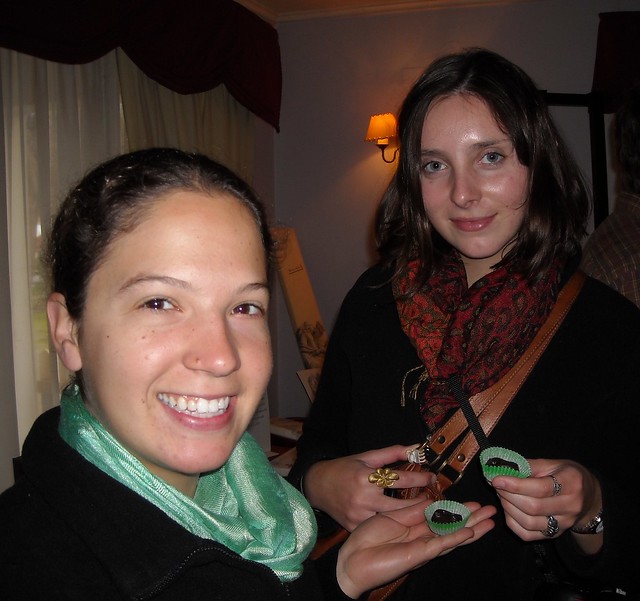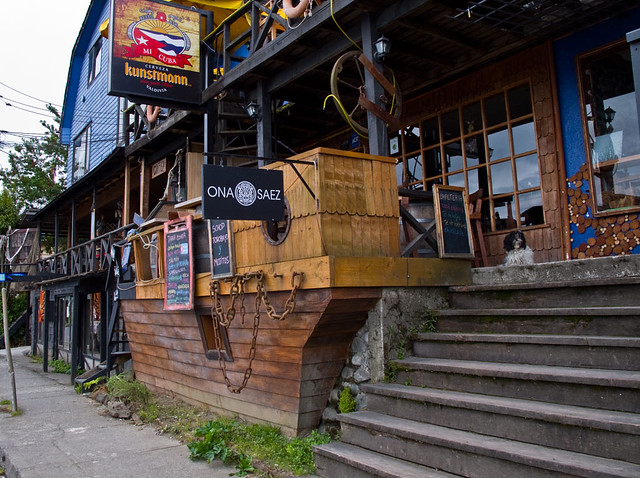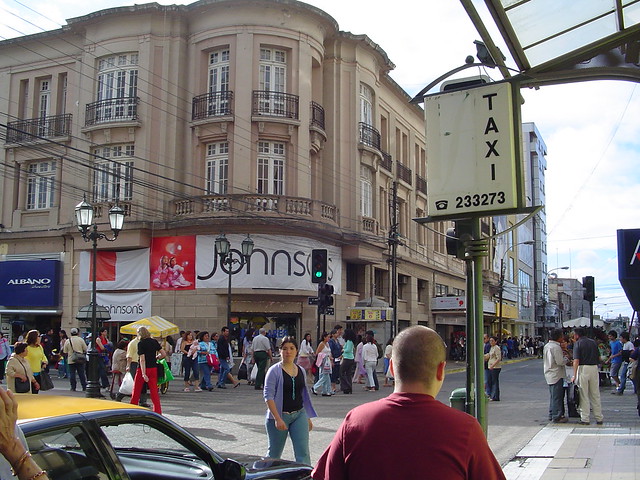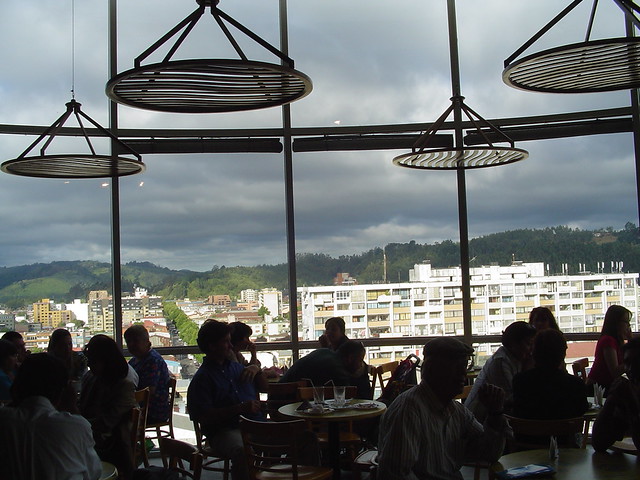- Joined
- Jul 24, 2008
- Messages
- 543
- Points
- 18
Students, orientation night, Chile




















Countries Seek Entrepreneurs From Silicon Valley
A bold new billboard looms over U.S. 101, the highway that runs through the heart of the global technology industry. "H-1b problems?" it reads. "Pivot to Canada."
That sassy invitation is directed at the thousands of foreigners having trouble getting temporary visas, known as H-1b's, to work in the United States. Canada's new so-called start-up visa offers them the prospect of permanent residency and with it, the country's relatively low business taxes and public health insurance.
Canada is not alone in reaching out to foreign entrepreneurs. In a bid to create their own versions of Silicon Valley, Britain and Australia have dangled start-up visas like this too. Chile is even offering seed money to lure foreigners to come to Santiago and get their start-ups off the ground.
But the seductions of this Silicon Valley are hard to resist for the men and women who dream of building the next Google (or at least being the next Google acquisition). This is where they want to be.
"It's like being in Florence during the Renaissance," is how Xavier Lasa, a Spanish computer coder, put it recently. He sounded dead serious. He had come to Mountain View, just south of San Francisco, on a short-term business visa to join a technology incubator program called 500 Startups. He was building a tool for brands to advertise on the Web.
Like many foreign tech entrepreneurs angling to stay here, he had his eyes on Washington, not Ottawa. The landmark immigration bill that the full Senate is to take up next week includes a provision that Silicon Valley investors have pressed hard for: a new visa category for entrepreneurs who have persuaded American investors to back them with at least $100,000 in financing.
Never mind that immigrants don't need special visas to be entrepreneurial; research shows that they are far more likely than native-born Americans to start businesses. Start-up visas are an easy political sell, which also explains Canada's latest gamble.
When Canada's immigration minister, Jason T. Kenney, came to visit 500 Startups recently, on a gloriously sunny Friday afternoon, he got a taste of what attracts foreigners. Dave McClure, a co-founder of the incubator, took him straight to the wall-to-wall 12th-floor window.
"Facebook is that way," Mr. McClure said, pointing to the 360-degree view. "You can see Apple over there."
"There's Sand Hill Road," he continued cheerfully, motioning toward the wide boulevard lined on both sides with big-name venture capital firms. "Stanford is just up that way."
The room was full of foreign entrepreneurs, huddled over laptops or sketching out business plans on whiteboards.
Julian Garcia, a programmer from Chile who was building a tool for marketers to target potential customers by location, explained his view of the Valley. "Here, you build something incredible, in two years, you get acquired."
Aditya Sahay, the founder of a men's fashion site, from India, retorted, "Even if you build something not incredible, you still get acquired — in four months!"
Mr. Kenney kept his game face on as Mr. McClure waxed about the attractions of the Valley. In an interview later, he said he was certain that some of the foreign entrepreneurs, uncertain about their immigration status in the United States, could be tempted by, say, Manitoba. He called them "a captive audience," and said he hoped to take advantage of what could be a short window of opportunity for his country while Congress argues over how to fix its own immigration law.
The new Canadian visa is not for tech entrepreneurs per se, but the venture capital requirements favor technology start-ups over more traditional immigrant businesses, like corner shops and restaurants. And the offer is far more generous than its American counterpart.
Anyone with one year of college and 75,000 Canadian dollars from an approved Canadian angel investor, or 200,000 Canadian dollars from an approved Canadian venture capitalist, can apply for the visa. Applicants need to be able to speak basic English or French. They need not prove they will create any jobs.
Mr. Kenney said he believed that investors, rather than workers in his ministry, were more capable of vetting who would be good for his country.
"The kind of rigorous assessment made by investors will ensure that the qualified applicants have really a high level of human capital and they are going to be able to move around the economy," the minister said.
Asked what happens if their businesses fail, he said he was confident that skilled, entrepreneurial foreigners would dust themselves off and find jobs in Canada's technology industry. "It's a risk we're willing to take," he said.
American lawmakers have opted for a more cautious approach. The proposed Senate bill would grant temporary visas valid for three years, unlike Canada, which would grant permanent residency. The Department of Homeland Security would have to report to Congress every three years on what kinds of businesses the recipients create, how many jobs they produce, and how much revenue.
It is not geared toward entrepreneurs in any specific industry, though the rhetoric around it has centered mainly on technology. Technology investors, like Mr. McClure, have been actively pushing for it.
"From a political perspective, the goal of the start-up visas is to demonstrate they're bringing in the sexiest, highest-value people," said Madeleine Sumption, assistant director for research at the Washington-based Migration Policy Institute, who has studied start-up visa programs worldwide.
But, she pointed out, most immigrant entrepreneurs — Google's co-founder, Sergey Brin, included — come in on other visas. "You don't need an entrepreneur visa to have entrepreneurs," she added. "You would have to let in a lot of people before you guarantee some Sergey Brins."
Australia offers its version of a green card to those who secure 1 million Australian dollars in financing from approved Australian venture capitalists. Britain offers temporary visas to those who procure £50,000 from a venture backer. Chile doles out $40,000 in equity-free seed capital to foreign visitors who want to start a technology business.
Ayan Barua, from India, has already spent six months in Chile and taken advantage of its offer. Even though his girlfriend, who is Australian, has tried to persuade him to apply for her country's start-up visa, he has resisted. Instead, he and his business partner, Vamshi Mokshagundam, have returned to Silicon Valley repeatedly to develop their business, a recommendation engine for businesses shopping for software.
Their funders are here, they said, as are their initial customers. So too are other entrepreneurs whose guidance they seek. "It's hard to find advice and mentorship anywhere else," Mr. Mokshagundam said. "That's a big deal for us."
Mr. Barua described California as the N.B.A. of the start-up world. "The adrenaline rush you need as an entrepreneur is here," he said.
If the omnibus immigration bill winding its way through the Senate were to become law, he said, he would absolutely apply.
If it did not, he and his partner said they might consider the Canadian visa. They would still want to come to Silicon Valley as often as possible. But they could use Canada as their base, as they use Bangalore, India, now. "It would be a shorter flight," Mr. Mokshagundam said.
Chile wants you and will give you $40k to go there.




















